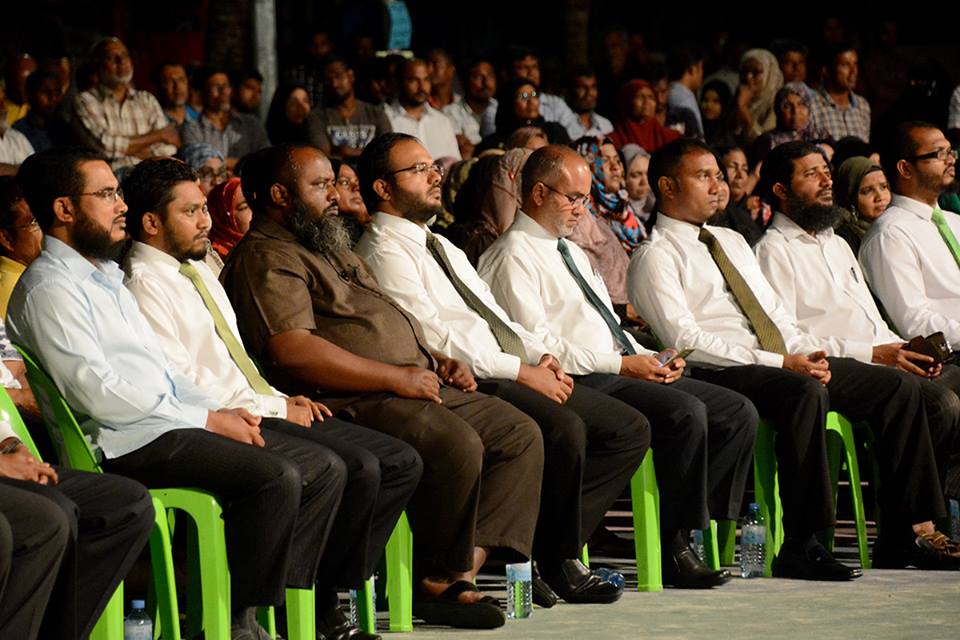Nasheed denies backing alcohol sale at guesthouses
The former president was denounced for saying “alcohol sells.”

14 Mar 2019, 09:00
Former president Mohamed Nasheed was forced on the defensive Wednesday after religious scholars denounced comments he made at a campaign event about developing the burgeoning mid-market tourism industry.
Lauding the success of guesthouse tourism on local islands introduced during his administration, Nasheed appeared to suggest a “bigger profit” could be made by authorising the sale of alcohol.
“I’m certain no one would have thought we were opening a multi-million, billion dollar industry when we decided to give permits for tourist business on inhabited islands back in 2009,” he said Tuesday night on the Thoddoo island in Alif Alif atoll.
“But there are certain realities in this world. Perfume is what sells most in the world, and then chocolate, alcohol and cigarettes. We know when we do business with these things, there’s a huge profit and we get richer.”
Become a member
Get full access to our archive and personalise your experience.
Already a member?
Discussion
No comments yet. Be the first to share your thoughts!
No comments yet. Be the first to join the conversation!
Join the Conversation
Sign in to share your thoughts under an alias and take part in the discussion. Independent journalism thrives on open, respectful debate — your voice matters.




